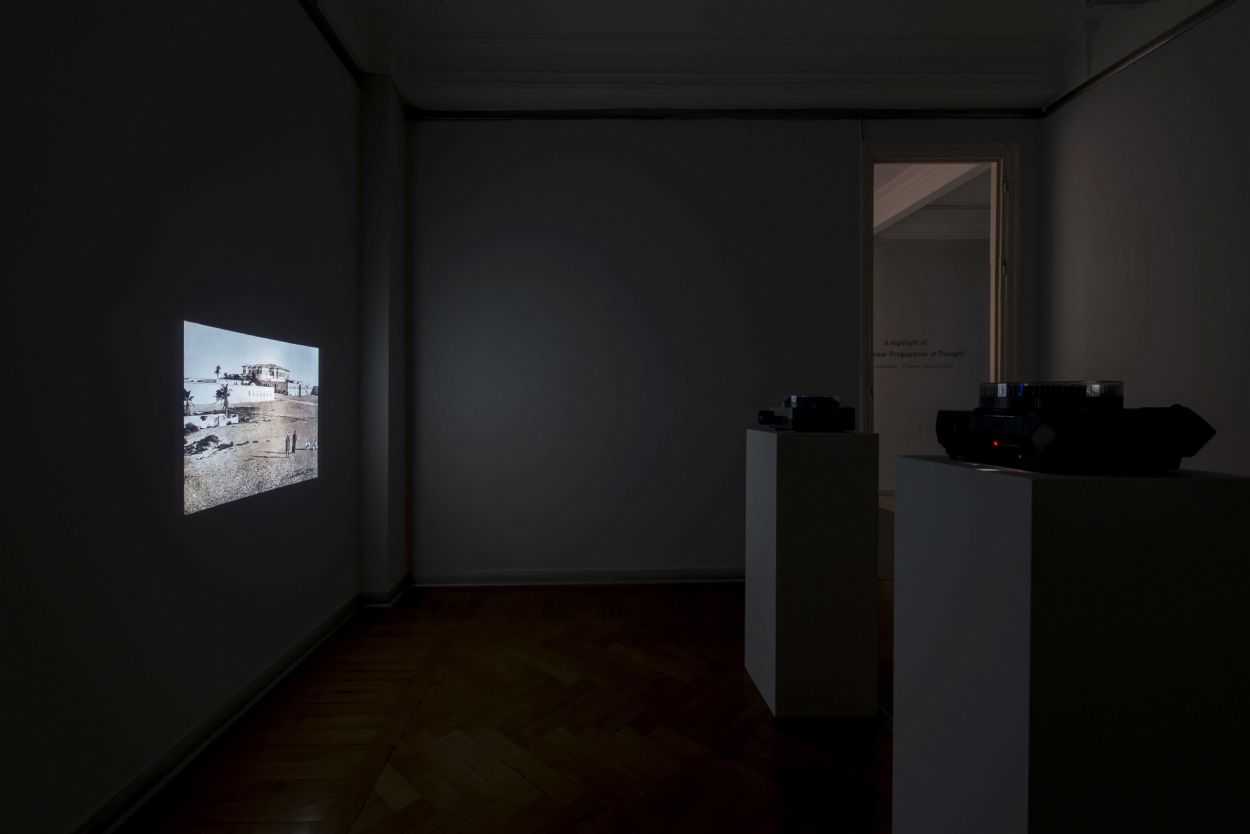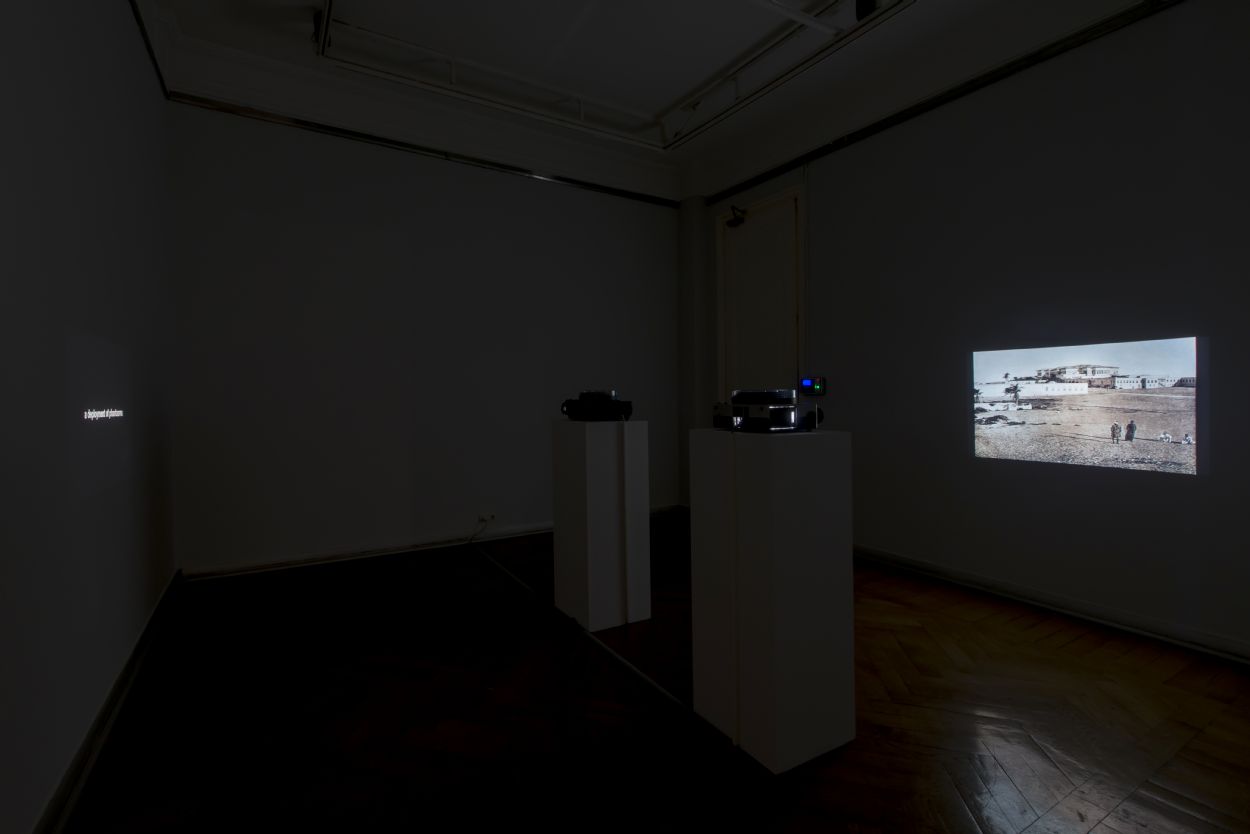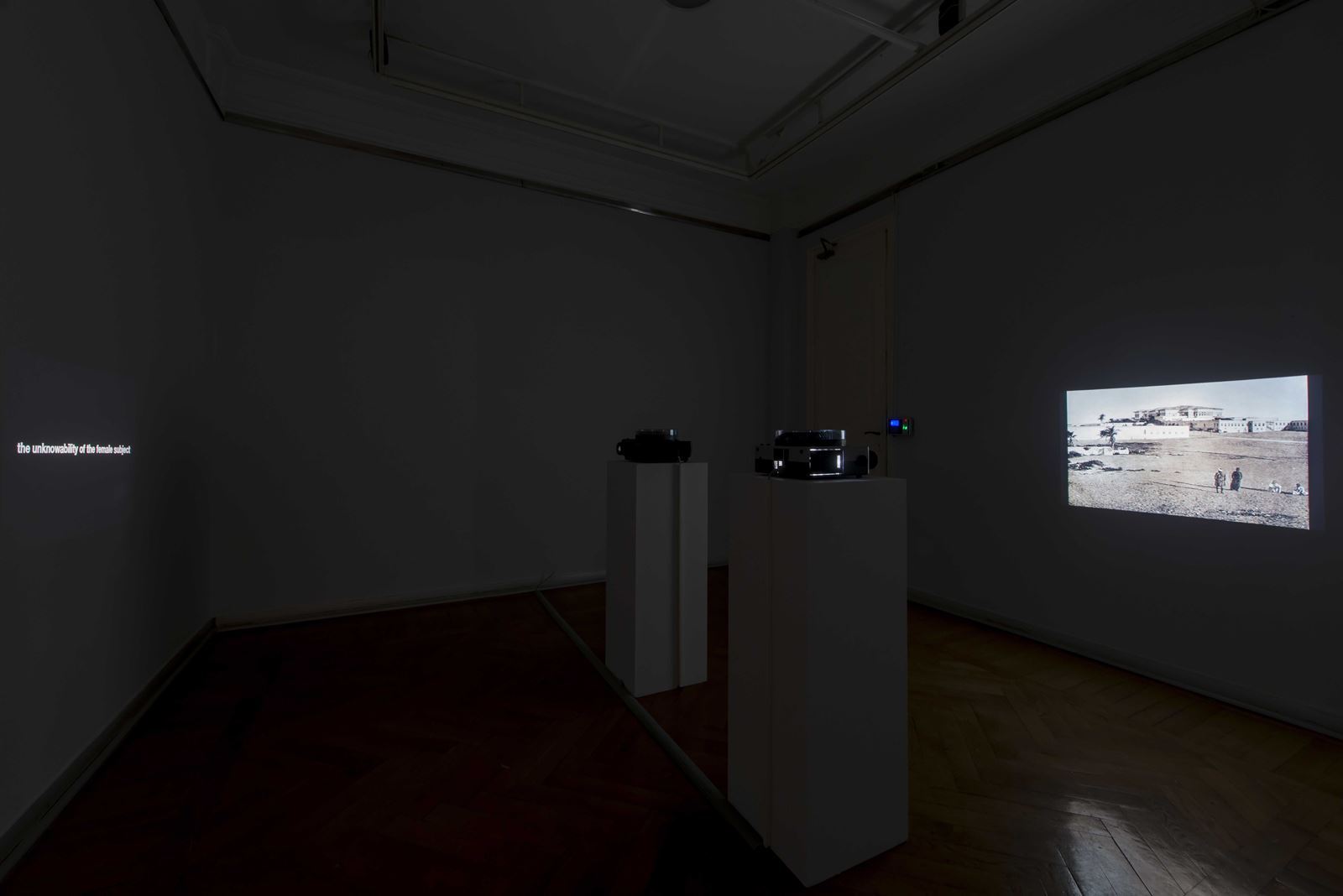A Highlight Of ‘A Rectilinear Propagation Of Thought’
21/09/2018 - 17/11/2018
Between the dates 21 September - 17 November 2018, Zilberman Projects - Istanbul is pleased to host a selection that presents a section of Heba Y. Amin’s solo exhibition “A Rectilinear Propagation of Thought” shown between 15 September - 2 November 2018 at Zilberman Gallery – Berlin.
“We have been daguerreotyping like lions.” Horace Vernet
The first documented photograph taken on the African continent dates from November 7, 1839, merely three months after France’s introduced the daguerreotype camera to the world. The photo was taken in Alexandria by French painter Horace Vernet who captured the exterior of Muhammad Ali Pasha’s palace harem. Even though there was nothing erotic about the image, it became a sensa-tion in Paris by igniting fantasies about what French viewers envisioned as a suggestive subject matter.
Heba Y. Amin’s exhibition A Rectilinear Propagation of Thought addresses the ways in which the colonial imagination has objectified vulnerable bodies, especially those of women, through the in-vasive gaze of optical tools. The artworks invoke mechanisms of domination and control through methods of surveying land and systems of surveillance. The exhibition interrogates the politics of technology, particularly on the African continent, and examines the mechanics of observation in relation to technological mediation. The title, A Rectilinear Propagation of Thought, references one of the fundamental laws of geometric optics which explains how vision works and takes its cue from medieval Arab scholar Ibn al-Haytham’s philosophy on perception as a framework to question ways of seeing and the positions of power.
The exhibition elaborates on The Earth is an Imperfect Ellipsoid, a project the artist has been devel-oping since 2014 which utilizes Al-Bakri’s The Book of Roads and Kingdoms (Kitab al-Masalik wal-Mamalik), an eleventh-century geography text and first comprehensive description of major trade routes in West Africa under the Islamic Empire. By contrast to Al-Bakri, who never visited West Af-rica himself, Amin embarked on a five-month journey along the same routes using the fragments of his book as a guide. The project criticizes the authored accounts of merchants, traders and travelers who describe geographies through sexually explicit descriptions of the women they encounter.
For more inquiries please contact Seyhan Musaoğlu, seyhan@zilbermangallery.com.
Heba Y. Amin’s work is embedded in extensive research and a studio practice that looks at the con-vergence of politics, technology, and architecture. Working with various media and extensively with archives, her work highlights and engages with narratives of national sovereignty, often in contest-ed territories and especially questions methodological assumptions embedded within Western his-toriography.
Her artistic work has been shown worldwide: 10th Berlin Biennale for Contemporary Art (Berlin, 2018), Kunstpreis der Böttcherstrasse - shortlisted (Kunsthalle Bremen, 2018), MAXXI – Museo Na-zionale delle arti del XXI secolo (Rome, 2018), Museum of Contemporary Art in Krakow (Krakow 2018), 15th Istanbul Biennial (Istanbul, 2017), Karachi Biennale (Karachi, 2017), An Astronomical Determination of the Distance Between Two Cities - solo (Zilberman Gallery, Istanbul, 2017), Dak'Art Biennale (Dakar, 2016), The Earth is an Imperfect Ellipsoid - solo (Künstlerhaus Bethanien, Berlin, 2016), Museum of Modern Art in Warsaw (Warsaw 2016), 9th Forum Expanded Exhibition (64th Berlinale, Germany, 2014), IV Moscow International Biennale for Young Art (Moscow, 2014), WRO 15th Media Art Biennale (Wroclaw, 2013)
» SIEHE AUCH
Artist Pages
- Heba Y. Amin




